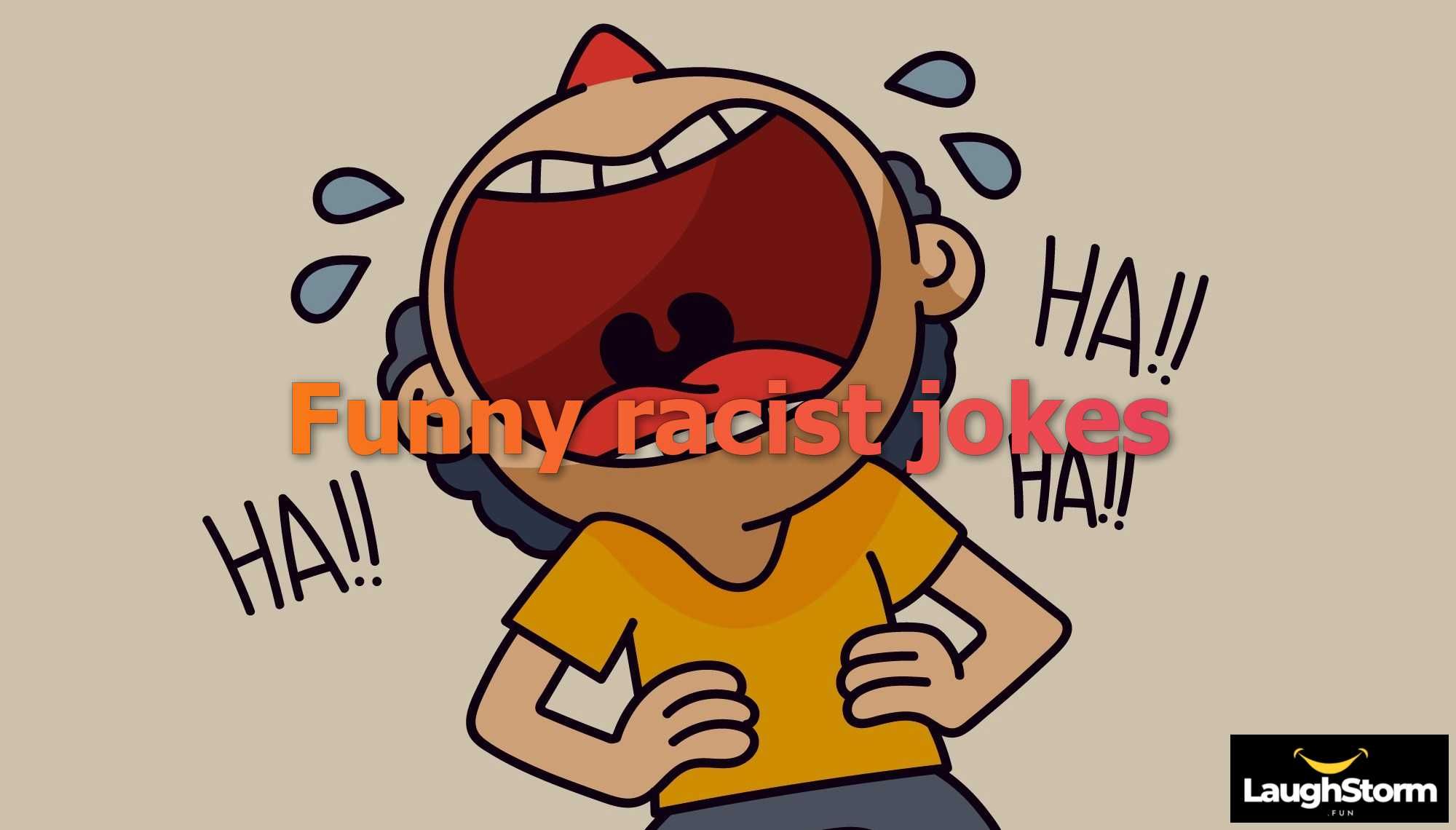Laughter can be one of the best medicines, but it can also be a double-edged sword, especially when it comes to humor involving race. While some jokes can bring people together in shared laughter, others can sow division and perpetuate harmful stereotypes. In this blog post, we’ll explore the phenomenon of funny racist jokes: their implications, how they affect conversations about race, and their place in comedy.
Understanding the Landscape of Humor
Before diving into examples, it’s essential to consider the context of racist jokes and their impact. Comedy has often served as a lens through which society examines its values, norms, and prejudices. While many comedians take on controversial subjects to challenge norms, not all jokes promote understanding or unity.
Racist jokes often rely on stereotypes, painting entire groups with a broad brush. While some might argue that these jokes are just harmless fun, it’s critical to recognize their potential to reinforce biases and create offense.
Humor, particularly when it touches on sensitive topics like racism, is subjective. Some may find amusement in culturally specific references, while others may see them as harmful or triggering. Thus, navigating this terrain requires a balance of wit, awareness, and responsibility.
The Rise of Offensive Humor
The rise of social media and comedy platforms has opened the door for various comedic styles. Limited only by the imagination, humor sometimes takes a dark turn. Offensive humor often encapsulates existing societal stereotypes, creating a context where audiences may laugh at something they wouldn’t find funny in a different setting.
As comedians and social commentators frequently highlight, humor can reveal truths about society. For instance, jokes that seem harmless about one race from the viewpoint of another often expose underlying tensions that deserve serious discussion. Here are some of the issues surrounding racist jokes:
- Reinforcement of Stereotypes: Certain jokes promote negative and simplified views of different ethnic groups, leading to deeper societal issues.
- Cultural Insensitivity: What may seem like a harmless quip to one group can be hurtful or offending to another, demonstrating the need for a nuanced understanding of context.
- Privilege in Poking Fun: Often, jokes about a specific race may come from a place of privilege, sidelining those who are genuinely affected by discrimination.
The Thin Line of Humor
When discussing the realm of these jokes, it’s interesting to note the difference between “punching up” and “punching down.” Humor that “punches up” mocks those in power, often leading to social commentary that resonates well. Conversely, jokes that “punch down” can reinforce stereotypes and oppression.
Consider the following original jokes, which are intended to highlight the absurdity of stereotypes without demeaning any group:
-
Why don’t scientists trust atoms?
Because they make up everything! If we’re not careful, we’ll be making up stereotypes too! -
Why did the scarecrow win an award?
Because he was outstanding in his field—just like every farmer, no matter where they come from! -
What did the fish say when it hit the wall?
Dam! Just like some barriers that need breaking! -
How do you organize a space party?
You planet—just like how we should plan for inclusion! -
Why was the math book sad?
Because it had too many problems—like the ones we face when not embracing diversity!
Shared Laughter in a Diverse Society
There are many forms of humor that bridge cultural divides and foster shared laughter. Clean comedy, puns, dad jokes, and clever one-liners can unite individuals, regardless of their backgrounds. In navigating the waters of humor, it’s essential to remember the value of inclusivity.
For example, dad jokes have gained popularity due to their universal appeal. They are often puns and harmless quips that elicit groans and giggles alike. If you’re looking for some funny dad jokes, check out our article on Dad jokes that are actually funny.
Moreover, humor can also emerge through playful costumes and role-playing, such as vibrant and quirky adult joker outfits that add a layer of fun without resorting to harmful stereotypes. Explore more on this topic in our post about Adult joker outfits.
A Warning About Intent vs. Impact
As we reflect on the world of jokes, the crux often lies not in the intent but in the impact. A joke may not be intended to harm, but if it perpetuates a stereotype or causes distress, it can have real-world consequences.
Here are additional original jokes that emphasize the absurdity and humor in our shared experiences without perpetuating harmful stereotypes:
-
Why did the bicycle fall over?
Because it was two-tired—just like me after explaining why stereotypes are a no-go! -
What’s orange and sounds like a parrot?
A carrot! The same hue doesn’t dictate humor. -
Why don’t bees ever get lost?
Because they always follow the buzz—let’s keep the buzz good, folks! -
Why did the tomato turn red?
Because it saw the salad dressing! No need to dress up stereotypes! -
How does a penguin build its house?
Igloos it together! A nod to creativity, no matter the culture.
Laughter as a Unifying Force
Engaging in discussions about race and cultural sensitivity via humor can pave the way for deeper understanding. It’s essential to focus on creating inclusivity through our jokes rather than deepening divides.
Here are a few more original quips highlighting unity:
-
What did one wall say to the other wall?
I’ll meet you at the corner! Let’s not meet at stereotypes. -
Why was the computer cold?
Because it left its Windows open—just like we should leave our minds open. -
Why do we tell actors to “break a leg”?
Because every play needs a cast—diversity included! -
What do you call a fake noodle?
An impasta! Just like how stereotypes can sometimes be flimsy. -
How do you make a tissue dance?
You put a little boogey in it—just like we need to infuse some fun into every culture!
Humor as an Avenue for Discussion
Finding the line in what constitutes a funny joke versus a discriminatory one can be challenging. Jokes, especially those about race, can lead to crucial discussions about inclusivity and understanding in society.
When we venture into the world of humor, we must ask ourselves vital questions:
- Who might be affected by the joke?
- Does it reinforce or dismantle stereotypes?
- Can it open dialogue instead of closing it off?
Through this self-reflection, we can transform humor from a divisive force into a bridge that fosters unity and understanding.
Conclusion: The Laughter We Choose
As we’ve navigated through the realm of funny racist jokes and their broader implications, one thing is clear: humor, when wielded thoughtfully, can inspire connection and camaraderie among diverse groups. As audiences and creators, we have the power to choose laughter that uplifts rather than diminishes, reshaping dialogues about race and culture.
Rather than turning to harmful humor, let’s lean into inclusive jokes and appreciate those that highlight our shared experiences. Together, through laughter, we can carve out a landscape that celebrates diversity, connection, and understanding.
Let’s continue the conversation! What kinds of humor foster unity for you? Share your thoughts below!

